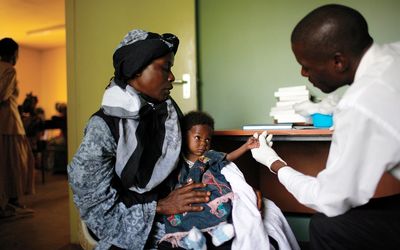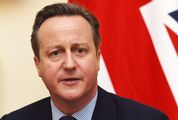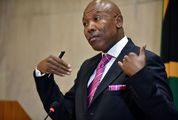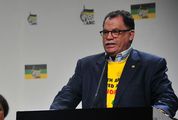Costing vital for national health scheme
by Johann Serfontein
2016-06-28 05:50:45.0
THE National Health Insurance (NHI) white paper, released in December 2015, states that "SA’s approach towards achieving UHC (universal healthcare) will be through the implementation of NHI". No reasons are given.
The origin appears to be the 2007 ANC elective congress in Polokwane, where a decision based more on political considerations than evidence was made to implement an NHI system. A "massive overhaul of the healthcare system" should surely not be proposed without there being some evidence to justify it.
Universal healthcare is needed, but serious questions arise regarding the NHI’s suitability as the model to implement it. The statement in the World Health Organisation (WHO) policy document that universal healthcare "does not mean free coverage for all possible health interventions, regardless of the cost, as no country can provide all services free of charge on a sustainable basis" also must be recognised.
The NHI’s proposed "free healthcare for all" ignores this. The WHO understands an important component of universal healthcare is health financing. Attention needs to be paid to raising sufficient funds, minimising out-of-pocket payments through prepayment and pooling, and using available funds efficiently and equitably so the universal health-care system is affordable to the country.
The WHO does not specify either free healthcare for all or a single-payer system. To assume, as the government seems to have done, that one does not need to do a costing of the NHI to implement it, is a fatal flaw. Ireland learnt this lesson four years after publishing its universal healthcare white paper when it carried out cost studies on the project. They found the proposed system was not affordable, "now or ever".
The WHO indicates that exact costing projections and scenarios are not necessary for considered changes in healthcare systems, but are important for raising core policy issues regarding the sustainability of healthcare reforms. Radically restructuring the health system should certainly be considered a core policy issue, and costing cannot be ignored. In August 2015, Health Minister Aaron Motsoaledi implied in an interview with Business Day, the Treasury had done costing projections for NHI. What happened to it when the white paper was released? Did they indicate the NHI was unaffordable, but with coming elections, for political expedience, were swept under the carpet?
Most submissions on the NHI white paper contain research-based criticisms of the unaffordability of the system; the inability of government to run a bureaucracy the size of the NHI fund; practical implications of understaffing at the office of Health Standards Compliance and the subsequent inability of the private sector to contract with the NHI fund; and the shocking quality of the public health system.
Some allude to the prevalence of corruption in provincial departments of health, which would undoubtedly continue in a structure the size of the proposed NHI fund, which will supposedly require 160,000 employees to administer it at a time when government appointment of employees is frozen.
The minister proudly proclaimed to detractors in an SAfm radio interview that state medical scheme Gems is a government-run fund and there are few complaints about the way in which it is run. Gems is run well, but it is a voluntary fund run by private sector medical scheme administrators, who are paid to run it well.
Despite the amount of critical and negative responses received about the proposed NHI system, the minister is pushing forward. Where is the consideration of alternative ways of achieving universal healthcare in SA? Where is the debate on the best way of achieving this?
This debate needs to happen now, before the initial phases of the NHI destroy the private health-care sector and set SA on a path of crippling health-care provider shortages.
• Dr Serfontein is a member of the Free Market Foundation health policy unit

A mother holds her child while she is screened by a clinical worker. Picture: BLOOMBERG
THE National Health Insurance (NHI) white paper, released in December 2015, states that "SA’s approach towards achieving UHC (universal healthcare) will be through the implementation of NHI". No reasons are given.
The origin appears to be the 2007 ANC elective congress in Polokwane, where a decision based more on political considerations than evidence was made to implement an NHI system. A "massive overhaul of the healthcare system" should surely not be proposed without there being some evidence to justify it.
Universal healthcare is needed, but serious questions arise regarding the NHI’s suitability as the model to implement it. The statement in the World Health Organisation (WHO) policy document that universal healthcare "does not mean free coverage for all possible health interventions, regardless of the cost, as no country can provide all services free of charge on a sustainable basis" also must be recognised.
The NHI’s proposed "free healthcare for all" ignores this. The WHO understands an important component of universal healthcare is health financing. Attention needs to be paid to raising sufficient funds, minimising out-of-pocket payments through prepayment and pooling, and using available funds efficiently and equitably so the universal health-care system is affordable to the country.
The WHO does not specify either free healthcare for all or a single-payer system. To assume, as the government seems to have done, that one does not need to do a costing of the NHI to implement it, is a fatal flaw. Ireland learnt this lesson four years after publishing its universal healthcare white paper when it carried out cost studies on the project. They found the proposed system was not affordable, "now or ever".
The WHO indicates that exact costing projections and scenarios are not necessary for considered changes in healthcare systems, but are important for raising core policy issues regarding the sustainability of healthcare reforms. Radically restructuring the health system should certainly be considered a core policy issue, and costing cannot be ignored. In August 2015, Health Minister Aaron Motsoaledi implied in an interview with Business Day, the Treasury had done costing projections for NHI. What happened to it when the white paper was released? Did they indicate the NHI was unaffordable, but with coming elections, for political expedience, were swept under the carpet?
Most submissions on the NHI white paper contain research-based criticisms of the unaffordability of the system; the inability of government to run a bureaucracy the size of the NHI fund; practical implications of understaffing at the office of Health Standards Compliance and the subsequent inability of the private sector to contract with the NHI fund; and the shocking quality of the public health system.
Some allude to the prevalence of corruption in provincial departments of health, which would undoubtedly continue in a structure the size of the proposed NHI fund, which will supposedly require 160,000 employees to administer it at a time when government appointment of employees is frozen.
The minister proudly proclaimed to detractors in an SAfm radio interview that state medical scheme Gems is a government-run fund and there are few complaints about the way in which it is run. Gems is run well, but it is a voluntary fund run by private sector medical scheme administrators, who are paid to run it well.
Despite the amount of critical and negative responses received about the proposed NHI system, the minister is pushing forward. Where is the consideration of alternative ways of achieving universal healthcare in SA? Where is the debate on the best way of achieving this?
This debate needs to happen now, before the initial phases of the NHI destroy the private health-care sector and set SA on a path of crippling health-care provider shortages.
• Dr Serfontein is a member of the Free Market Foundation health policy unit
























